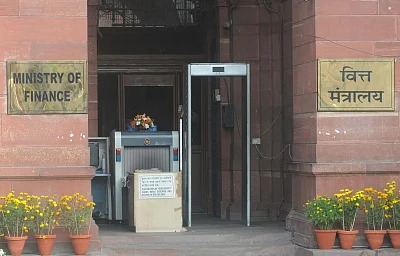Senior citizens lose ₹11 crore in online love scam
Nearly 20 individuals lost ₹11 crore in online love scams within two weeks, primarily affecting victims over 60. One 70-year-old man lost his life savings after being manipulated by a scammer posing as a neighbour.

NEARLY 20 people in Hong Kong lost over HK$10 million (nearly ₹11 crore) in online love scams in just two weeks. According to police, 40% of the victims are above 60 years old.
One victim, a 70-year-old man, lost his life savings. He also ended up with a loan of nearly HK$1 million (nearly ₹11 lakh).
It started two months ago when he received a WhatsApp message. A woman claimed she was his neighbour and said there had been a water leak in her flat. She later said she had messaged the wrong person. However, they kept talking and slowly developed an online relationship.
The woman, who was actually a scammer, sent romantic messages and claimed she had insider knowledge about cryptocurrency. She told the man things like “You know I’ve fallen for you” and “You have to listen to me and cherish me”, police shared on CyberDefender Facebook page.
The man trusted her and began withdrawing cash from his bank and depositing it into accounts she shared. In just two months, he lost over HK$3 million (nearly ₹33 lakh).
Bank staff became suspicious when he tried to withdraw a large amount of money. They called the police, and the scam was exposed.
Police said this was just one of 20 similar cases in the last two weeks. Many involved older people led to huge financial losses.
Warning against cyber crimes
Police are now warning everyone to be careful while chatting online. They advise people to verify identities using video calls and not to send money to strangers, no matter how sweet they seem.
People should not trust strangers they meet online. They must remain cautious and alert during any online conversation. People should think clearly and not fall for sweet or emotional words. They must avoid making quick decisions about money, says the Facebook post.
At the same time, police also warn against online platforms promising high profits from trading or investments, as they are usually scams.
Also, when someone’s identity seems doubtful, people should check their photos on social media. They may also ask for a video call to confirm who they are, says the post.
Social media reactions
Social media users reacted to the scam. One of them wrote, “It's sad that even a 70-year-old could not avoid it."
"So, even if the police or government keep urging people every day, those so-called smart people dismiss it as rubbish, think they’re too clever, and end up getting scammed without any effort," wrote another user.
“Seriously, who would believe in late-life romance? Even if it does happen, nobody would be foolish enough to trust a stranger from afar and pay money first," came from another.










































































